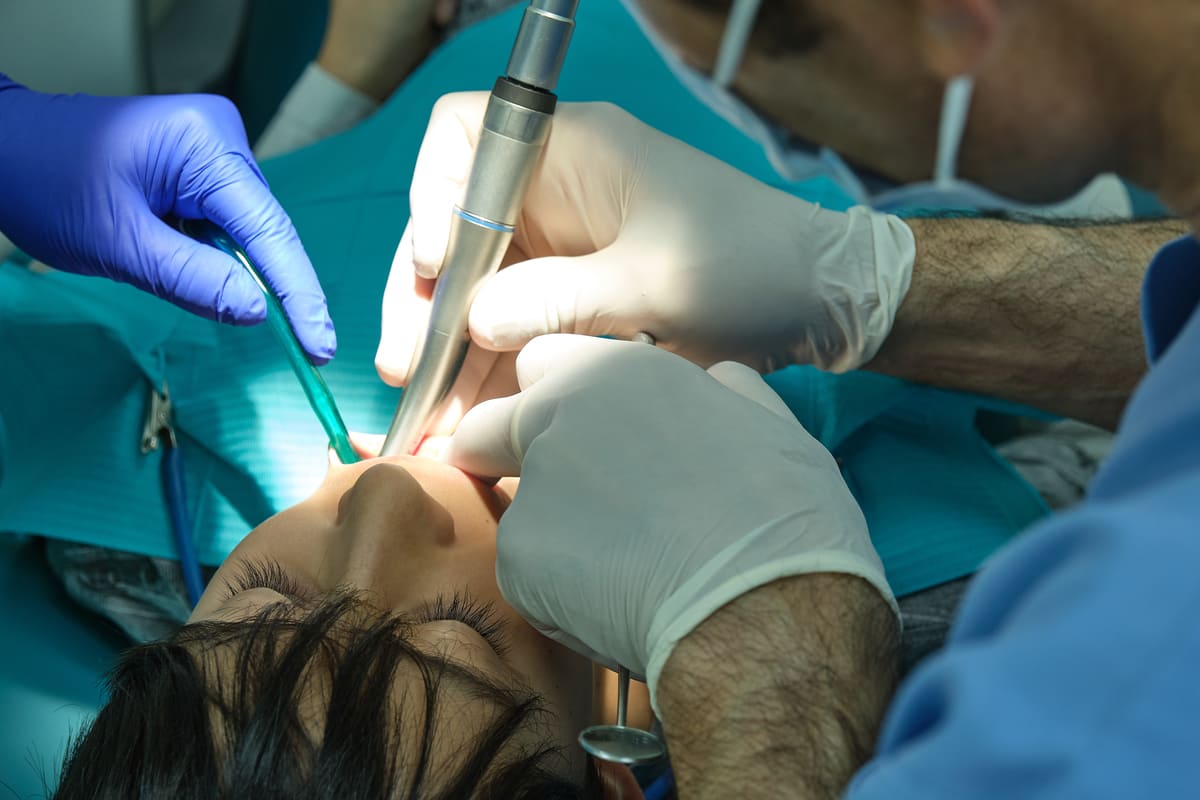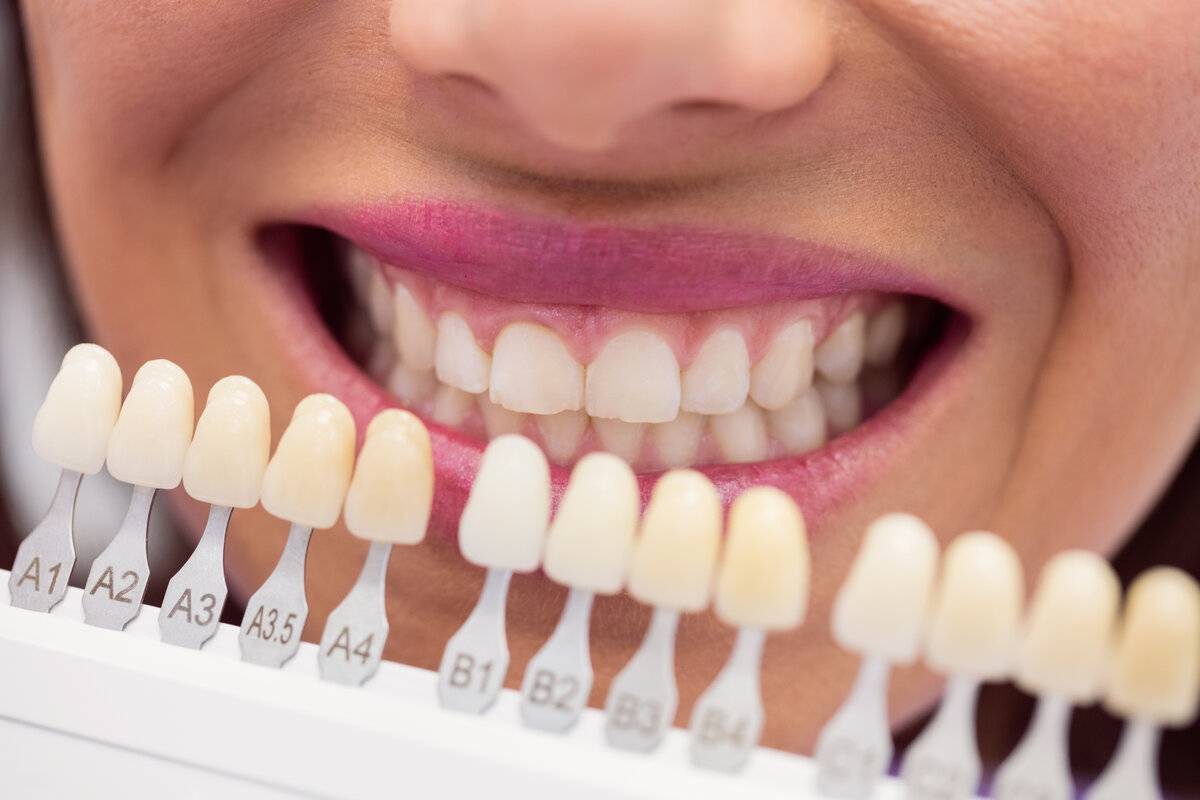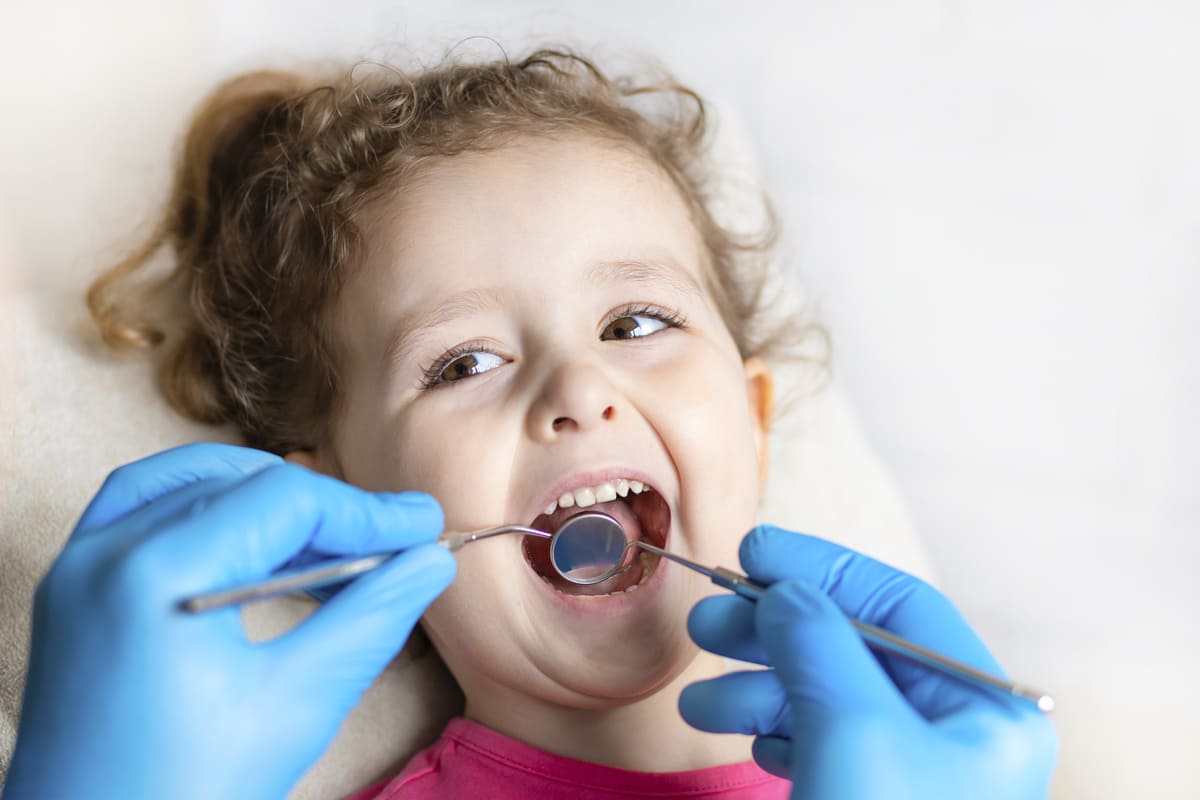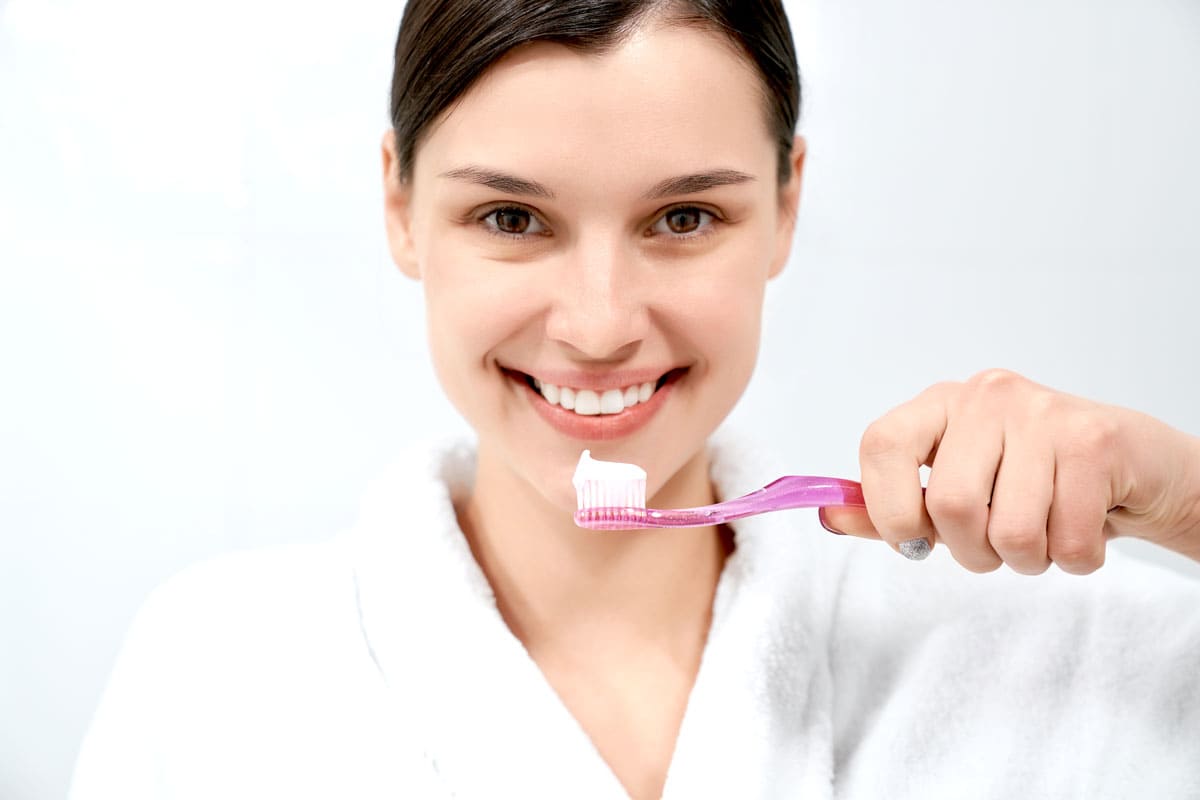Pregnancy brings with it many hormonal changes that can alter oral health in particular and physical health in general. As a result, a pregnant woman, especially if she is a first-time mother, has many questions about what she can and cannot do while she is pregnant. In this article we answer several questions about how to take care of your teeth during pregnancy and whether it is advisable to have your teeth cleaned.
Gingivitis: A common condition during pregnancy
Gestational gingivitis is very common in pregnant women, mainly due to the hormonal changes that occur during this period. Increased blood flow, vomiting and nausea can also play a role. All this affects the soft tissues of the mouth and increases the deposit of bacteria, leading to gingivitis and, in some cases, tooth decay.
Most common symptoms of gingivitis
Almost 70% of pregnant women suffer from this pathology and it frequently appears from the second trimester onwards. It is important to pay attention to the symptoms of gingivitis in order to diagnose and treat this condition in time, as its complication can lead to a more serious disease, periodontitis.
Gum inflammation
Gingivitis is an inflammation of the gums, which can be caused by the accumulation of tartar as a consequence of poor hygiene over a long period of time, the hormonal alterations of pregnancy or the use of irritating products.
Dark red or purplish gums
Swollen gums in pregnancy may be accompanied by a dark red or purplish colour. These symptoms may be caused by injury or aggression after heavy brushing or by an intolerance to dental products used for daily hygiene.
Gums bleed easily after brushing
Gums can bleed after brushing, but they can also bleed during chewing and even spontaneously. Bleeding gums can also be accompanied by tooth sensitivity in pregnancy.
Bad breath
Bacterial build-up in gum deposits can cause halitosis. If proper oral hygiene has not been maintained and plaque production increases during pregnancy, daily brushing may not be enough and professional teeth cleaning may be required.
Retracted gums
Gum recession is a progressive process in which the soft tissue that supports and protects the tooth is lost. It should be noted that the gum is not capable of recovering on its own, so it is advisable to visit a dental clinic as soon as possible to begin treatment if this symptom is detected.
Why is it advisable to have your teeth cleaned during pregnancy?
When you are pregnant, the most important thing is your health and that of your future child. In this sense, it is essential to increase dental care during pregnancy, as failure to do so can put your baby’s health at risk.
In addition to maintaining correct and constant oral hygiene (3 brushings a day for a minimum of 2 minutes), it is advisable to visit a dental clinic for a professional check-up and a dental cleaning. The ideal time to have your teeth cleaned is during the second trimester of pregnancy, when the baby’s main organs are already formed and there is even less risk.
Recommendations for taking care of your dental health during pregnancy
During pregnancy, oral hygiene measures should be taken to the utmost. At home and on a daily basis, you can apply these simple tips to keep your mouth healthy:
Inform your dentist of your pregnancy
It is essential to inform your dentist of your condition. Keep in mind that he or she will be able to advise you on which habits to follow and which to avoid during pregnancy. In addition, he or she will avoid applying treatments that could put the health of the foetus at risk.
Have a check-up every 3 months
You have already read that pregnancy causes numerous internal and external changes in a pregnant woman’s body. For this reason, and to ensure proper oral health, it is a good idea to have a check-up every three months. In this way, your dentist will be able to anticipate possible sequelae or conditions that may alter your condition and that of your baby.
Eat a balanced diet as much as possible
Diet is the basis of a healthy state at all levels. Although it may be difficult to maintain a balanced nutrition due to cravings, it is advisable to eat natural and fresh food, far from ultra-processed and so-called ”junk food”. This will avoid the risk of bacterial plaque.
Drink plenty of water
By drinking water, your mouth and tongue stay clean, more saliva is secreted, preventing dry mouth and maintaining a neutral pH, preventing acidity in the mouth, which can lead to tooth decay.
Limit foods with sugar to avoid possible caries problems
As well as maintaining a balanced diet, it is worth remembering that sugary products can considerably worsen the health of your mouth, leading to tooth decay.
Don’t forget to brush your teeth after every meal
Oral hygiene in pregnant women should be based on daily brushing after every meal (including snacking between meals), which is essential to prevent the build-up of bacterial plaque. It is advisable to accompany tooth brushing with the use of dental floss and mouthwash.
Use a toothbrush with fine filaments
To reduce aggression to the gums when brushing, it is essential to use a toothbrush with fine or soft filaments and to use gentle movements without damaging the gums.
Change toothbrushes every three months
A toothbrush that is used daily at least three times a day will not last more than three months in its functional and hygienic state. Change your toothbrush at the slightest sign of wear, as you may not be removing plaque effectively.
Other frequently asked questions from our pregnant patients
I have a chipped tooth, can it wait?
We have already proven that it is safe to go to the dentist during pregnancy. Ideally, if you have a chipped tooth or cavity, you should go for a check-up so that your dentist can assess treatment after diagnosis.
Are X-rays contraindicated?
X-rays should be avoided during pregnancy. They are only performed as an exception in emergencies. It is therefore important that health care professionals are aware of the pregnancy before any test is performed.
Can I have my teeth whitened during pregnancy?
The risk of having teeth whitening during pregnancy is not proven, however, the use of hydrogen peroxide (a product used to whiten teeth) is contraindicated in these cases.
If I have to have a local anaesthetic, how does it affect me during pregnancy?
The product used to anaesthetise the area, usually lidocaine, does not affect either the mother or the foetus.
Summary
If you are pregnant and want to know more information about which dental treatments are suitable or contraindicated during pregnancy, contact us, we will advise you without obligation. At Medident Dental Clinic we have a team of professionals for whom you and your baby come first.









